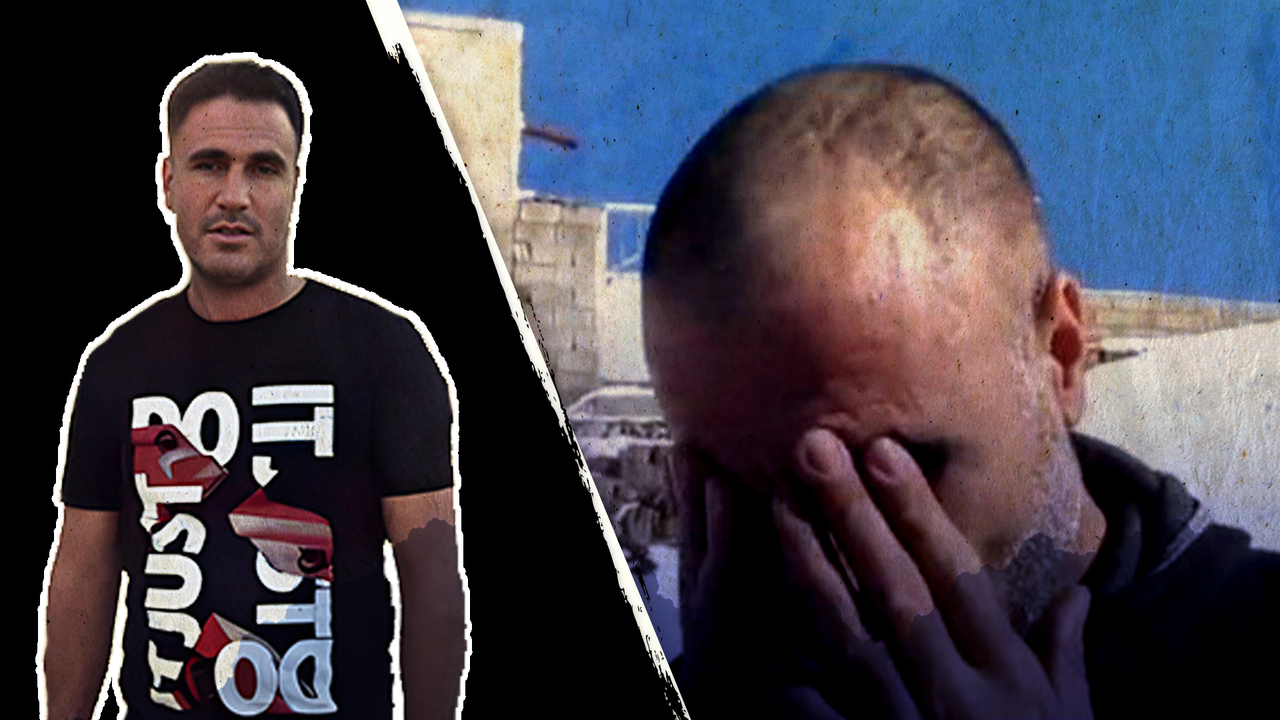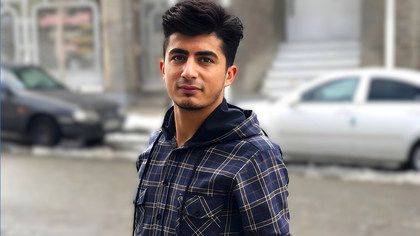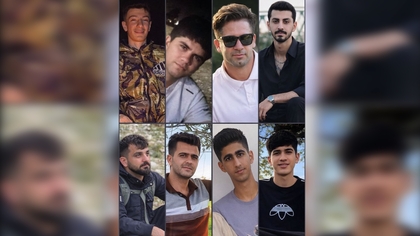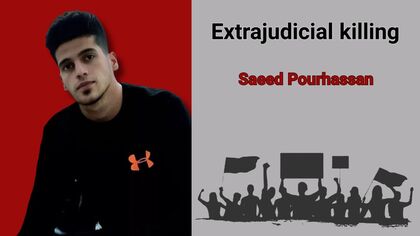An Account of Torture and Forced Confessions of Hamid Hosseinnezhad Heydranlou

Hamid Hosseinnezhad Heydranlou, a Kurdish political prisoner sentenced to death, was held in solitary confinement at the Urmia Intelligence Agency for 11 months and 10 days, during which he was subjected to intense physical, psychological, and systemic torture. All confessions later broadcast through state-run media were obtained during this period under severe pressure, coercion, threats, violent interrogations, and psychological manipulation.
This report, based on Hamid Hosseinnezhad's own statements as relayed by informed sources and an official legal appeal, outlines in detail the torture methods, forced confessions, and legal violations. It demonstrates that the court’s reliance on such coerced statements to issue a death sentence is legally invalid and constitutes a grave threat to the principles of criminal justice and human rights.
1. Gunpoint Threat During Filming of Forced Confession
According to Hosseinnezhad and a reliable source, while being taken to the scene staged for recording a confession video, two armed security agents aimed their weapons directly at him. A third agent instructed:
“Repeat exactly what I say. If you don’t, we’ll shoot you right here.”
This armed threat—delivered while he was defenseless in custody—clearly constitutes a forced confession under duress. According to Iran’s Criminal Procedure Code and international human rights treaties, statements extracted under such conditions hold no legal weight.
2. Hunger Strike, Gastric Bleeding, and Denied Medical Contact
During his solitary detention, Hosseinnezhad launched a week-long hunger strike to protest torture and inhumane conditions. It led to severe stomach bleeding and critical deterioration in health, prompting emergency hospitalization.
Doctors suggested filming his condition to inform his family. However, security agents prohibited the recording and blocked any communication with his family—denying both medical transparency and emotional contact at a critical moment, in violation of Article 22 of Iran’s Prison Regulations and international norms on prisoner rights.
3. Suicide Attempt Under Torture
At one point, overwhelmed by psychological torment, isolation, and family disconnection, Hosseinnezhad attempted suicide by hanging himself with a towel. Security cameras detected it and guards intervened. This reveals the psychological trauma and extreme distress caused by prolonged solitary confinement—conditions classified as cruel and degrading treatment under Article 7 of the International Covenant on Civil and Political Rights (ICCPR).
4. Starvation as a Torture Tool and Threat of Slow Death
He recounts being deliberately deprived of food and surviving only by consuming sugar cubes with warm water:
“I only had a few sugar cubes, and I ate them with warm bathwater to avoid starving to death.”
Such intentional food deprivation, especially in solitary confinement, amounts to physical and psychological torture, and violates both the Mandela Rules and the Convention Against Torture. The responsible authorities bear direct legal accountability.
5. Emotional Torture Using Fake Stories About Family
Interrogators fabricated false scenarios to emotionally manipulate him into confessing. In one case, they showed a crying image of his 13-year-old daughter, Ronahi, in custody, saying:
“Look, we beat your daughter. See how much you've hurt her.”
They also falsely claimed his wife was detained and his brother had died in a car crash. These lies, targeting a detainee under extreme duress and isolation, constitute psychological torture aimed at breaking the will of the accused, violating fundamental norms of humane interrogation.
6. Flogging and Physical Torture to Extract Confession
Hosseinnezhad reported being threatened with 500 lashes and receiving 25 lashes, after which he broke down and confessed:
“I couldn’t take it anymore. I confessed to everything.”
This happened during efforts to record his video confession. Such physical abuse, intended to elicit a statement, violates Article 38 of Iran’s Constitution and Article 7 of the ICCPR, which strictly prohibit torture for confession.
7. Fingerprint Coercion and Deceit Against an Illiterate Accused
Hosseinnezhad, who is illiterate, stated that none of the interrogation forms were read to him. Instead, interrogators falsely promised:
“Sign this and you’ll be released.”
When he refused, they forcibly pressed his thumb onto the papers. Such deception and coercion invalidate any confession, especially under Article 169 of Iran’s Criminal Procedure Code, and violate international norms on informed consent in legal proceedings.
8. Beating by Investigating Judge During Legal Proceedings
During a hearing before Judge Esteiri at the Urmia Revolutionary Court, Hosseinnezhad was not only threatened but also violently beaten, resulting in a broken tooth and severe facial bruising. The judge reportedly told him:
“Confess to all charges.”
Eventually, under this judicial violence, Hosseinnezhad confessed in court under duress.
Later, he informed Judge Mokhtari about the assault. Mokhtari admitted:
“Esteiri had no right to do that. I’m surprised.”
Despite this acknowledgment, no investigation or disciplinary action followed. This silence illustrates institutional complicity and failure to uphold judicial accountability.
9. Severe Violations Outlined in Ignored Legal Appeal
Before his execution sentence was confirmed by the Supreme Court, Hosseinnezhad’s legal team submitted an official appeal detailing:
Arrest without clear charges
Lack of access to legal counsel and trial updates
Extended solitary confinement
Systematic torture and coerced confessions
Exploitation of illiteracy
Denial of exonerating evidence
Fabricated criminal history
Despite these substantial claims, the Supreme Court ignored the appeal entirely, never even reviewing its content—rendering the legal process fundamentally flawed and unjust.
These nine documented violations—each alone sufficient to nullify the case—collectively demonstrate a systematic breach of due process and human rights. The death sentence issued under such conditions not only lacks legal validity, but also poses a grave threat to the integrity of justice and human dignity.



